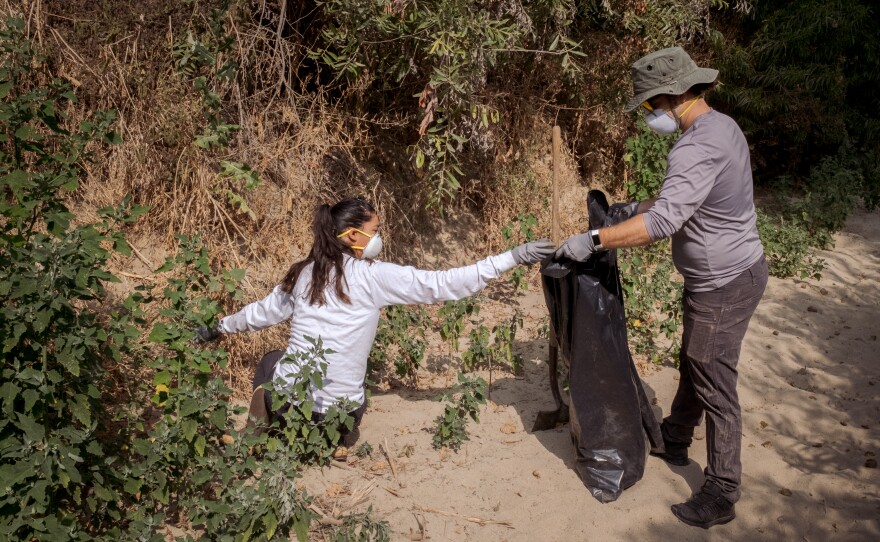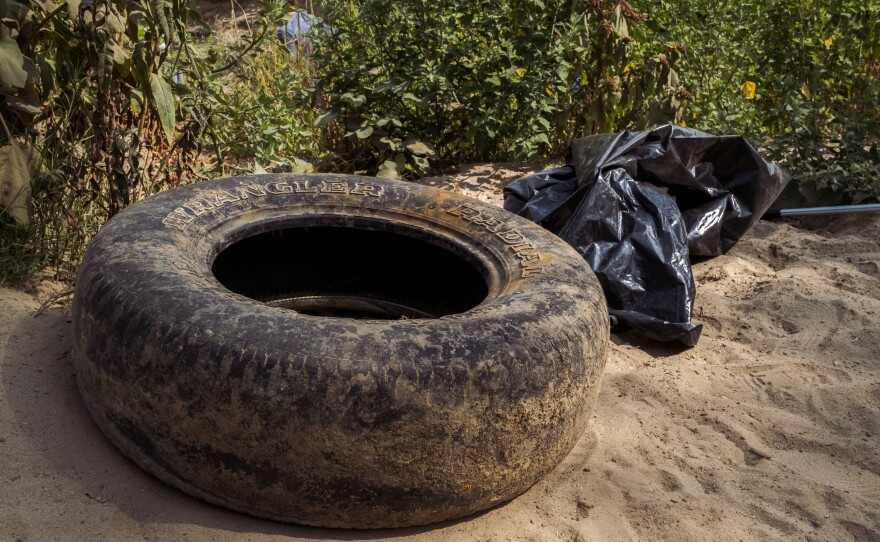Members of the Spring Valley Clean Up Crew -- equipped with N-95 masks, gloves and rubber boots -- gathered Friday morning in the polluted Tijuana River Valley.
They say they’re confronting an environmental emergency and that San Diego County officials haven't taken appropriate action.
"Although the county has declared a public health crisis, we are demanding that they declare a state of emergency because after they declared a public health crisis they opened up a campsite along the river and they’ve told none of the people staying here how toxic it is," said Victoria Abrenica, the group's founder.
RELATED: San Diego Officials Call Tijuana River Valley Sewage Flow A Public Health Crisis

Abrenica is referring to the Tijuana River Valley Regional Park Campground, which opened in late April a little over a mile south of the cleanup site.
At that time, District One Supervisor Nora Vargas addressed the environmental concerns during the campground's grand opening event.
“We’ve had a lot of challenges with our sewage and the contamination from Mexico, but this is one of the ways where we continue to highlight the beauty of this valley,” Vargas went on to say, “What’s important to note is that the soil has been tested. This is a safe campground for our community.”
RELATED: Southwesternmost US Campground Opens In Tijuana River Valley

Adam Cooper, one of the volunteers at the cleanup, is also an atmospheric chemistry PH.D student at UC San Diego. He described what happens to the valley when it rains.
“The Tijuana river which tracks a lot of runoff from the city, waste water, storm water crosses the border here, drains out in these sweeps," Cooper said. "And now, during the summer, it’s all dry and so the trash just kind of sits here and digs into the soil."
Cooper says he has conducted lab tests on water samples from the valley and is concerned about the chronic, toxic exposure to the surrounding community.
“Analyzing some of the samples we collected, we’re seeing pesticides,” Cooper added. “We’re seeing a lot of pharmaceuticals. We’re even seeing illicit drugs like methamphetamine, cocaine, heroin pop up.”
Abrenica says evidence of the toxic toll abounds.
“People are dying. The community gardens here aren’t producing food that people can eat now and all the surrounding areas we feel are no longer habitable,” Abrenica noted.
Members of the crew say they’ll continue to host cleanups.






